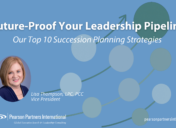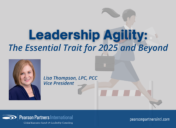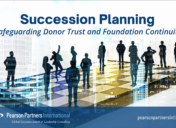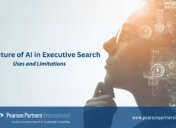Tips from the Leadership Coach: Appealing to the Aging Baby Boomer Generation
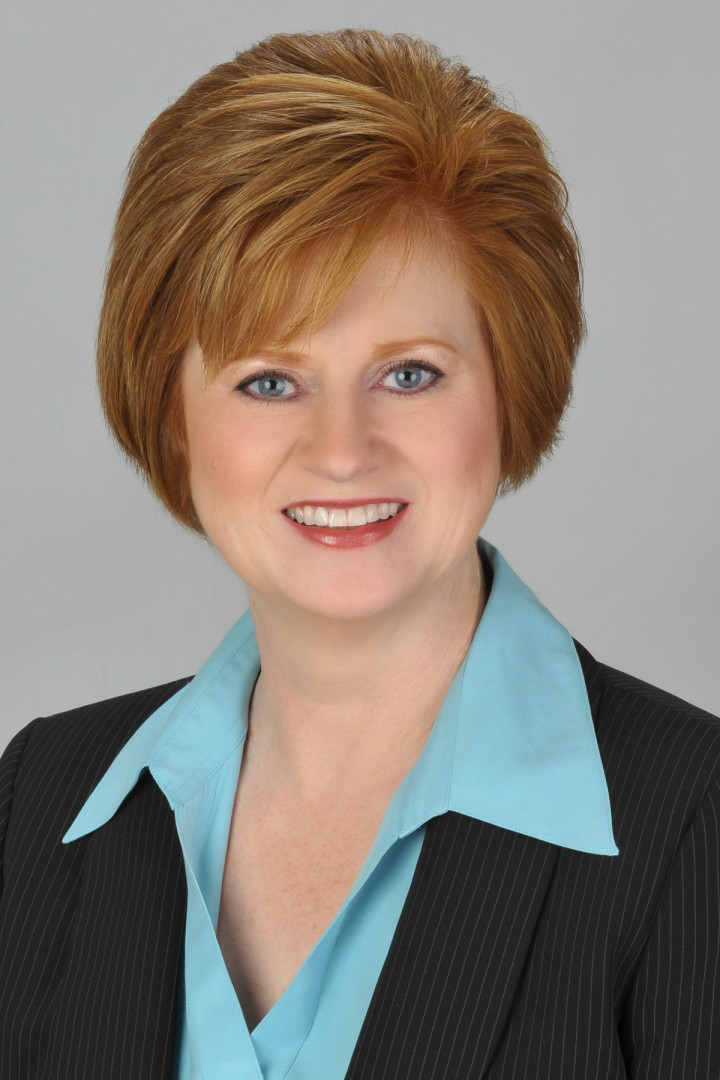 Lisa Thompson, Director, Professional Services
Lisa Thompson, Director, Professional Services
Senior human resources executives face an unprecedented challenge in retaining the institutional knowledge and skills of retiring workers. With an estimated 10,000 Baby Boomers reaching age 65 each day, organizations of all sizes face a potential “brain drain” as valued employees leave the workforce and enter retirement.
A substantial segment of Baby Boomers has not saved enough money to retire in comfort, and wouldn’t mind putting in another year or two on a job where they can still enjoy steady pay and benefits. In fact, a recent study by the Employee Benefit Research Institute notes that more than half of all workers say they intend to stay on the job longer than they would like in order to keep their health insurance benefits. However, only 19 percent of retirees said they were able to work longer and continue receiving health insurance through their jobs.
This study points out the vital role that health benefits play in attracting and retaining older workers. Clearly, older workers have higher annual healthcare expenses each year than their younger counterparts, but those costs may be outweighed by the benefits of retaining would-be retirees—at least until they can “download” their knowledge to their successors.
The 2012 Health Confidence Survey, sponsored by EBRI and Mathew Greenwald and Associates, also found that a growing proportion of older American workers would retire earlier if they were assured of health coverage. A decade ago, only 15 percent of workers reported that they would retire earlier than planned if they were guaranteed access to health insurance, but that percentage had nearly doubled to 27 percent by 2012.
Paul Fronstin, director of EBRI’s Health Research and Education program and author of the report, said the Patient Protection and Affordable Care Act may change the current labor-market dynamics by offering new insurance alternatives for older workers.
“With those expanded alternatives, employers that currently provide retiree health benefits may well find themselves considering an exit strategy,” Fronstin said. “That, in turn, may affect the willingness of many older workers to stay on the job.”
Lisa Thompson, Pearson Partners International’s director of professional services, points out the importance of having processes in place to capture older employees’ expertise, before they get away.
“You can’t put a price tag on the value that seasoned employees bring to an organization,” said Thompson. “Careful succession planning is one way that companies can tap this intellectual goldmine and ensure that years of organizational knowledge are passed along to future generations of employees .”
Because the value of knowledge often far exceeds the cost of benefits, HR executives should look closely at their benefits offerings to see if there’s an opportunity to retain the “best and the brightest” of their mature workers as long as feasible.


